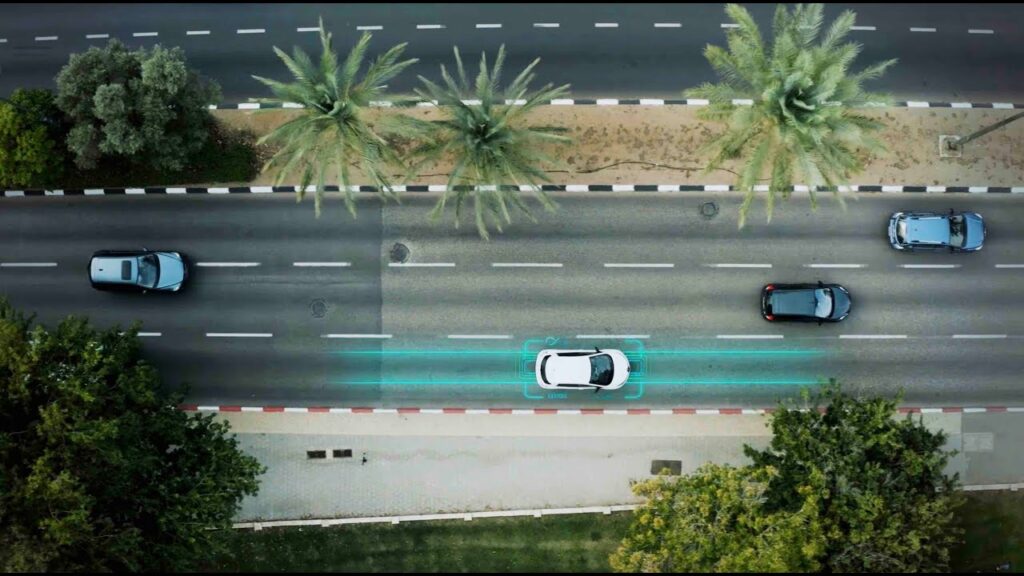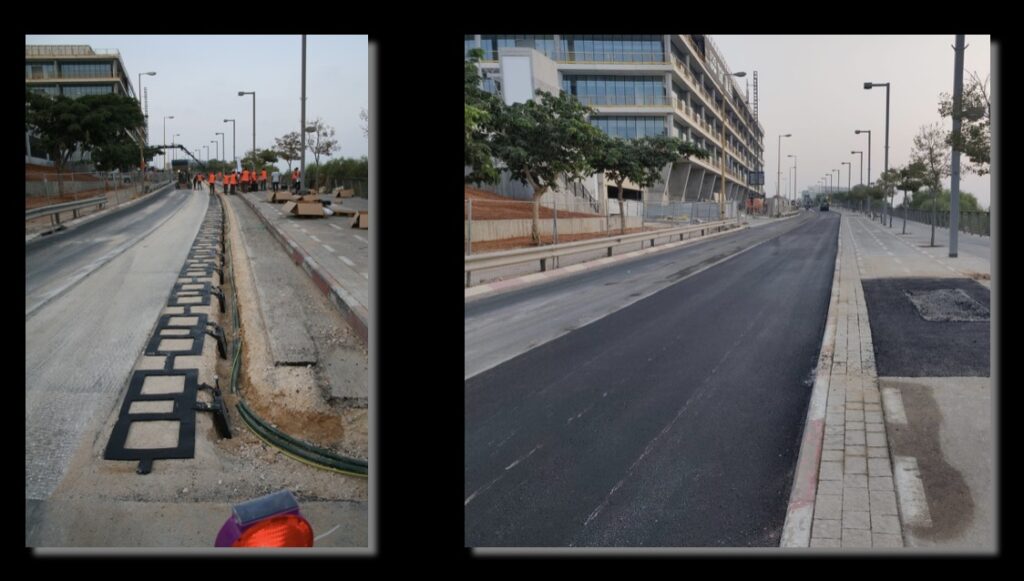Israel-based ElectReon, along with Volkswagen and Eurovia, was recently selected to provide the technology for eCharge, a project funded by the Roads Innovation Program of the German Federal Highway Research Institute (BASt). The goal of the €1.9 project is to develop an economical and functional solution for inductively charging electric vehicles while driving.
Roadway-embedded inductive EV charging technology consists of the following components:
- Under-road units: Infrastructure built of copper coils under the asphalt
- Management unit: Transfers the energy from the electricity grid to the road infrastructure and manages communication with approaching vehicles
- Vehicle unit: Receivers are installed on the floor of the vehicle to transmit the energy directly to the engine and the battery while driving (pictured below)
- Central control unit: Operating in the cloud, the CCU communicates with all management units and all registered vehicles
The eCharge project will focus on testing issues such as road integrity, connection to a renewable energy source, the billing interface and the systems’ integration with vehicles, as well as analyzing different business cases for the German mobility market. Commenting on the partnership, Volkswagen’s Head of Innovation said:
Volkswagen relies on e-mobility like no other manufacturer and is consistently working on further technological developments in this area. Inductive charging offers a lot of potential here, as it can simplify the charging process considerably. In addition, this technology could, in principle, be used in all vehicle segments from cars to trucks. With this project, we want to understand the technology better and examine its possibilities in comparison to the alternatives.
Examples of locations that could benefit from this type of inductive charging include queueing lots at airports, major arteries with heavy volumes including stop-and-go traffic, fixed routes such as shuttle bus services and transit bus routes, and autonomous fleet vehicles.
Benefits of inductive EV charging in roadways include:
- Vehicles can carry smaller batteries, saving on upfront expense and providing improved mileage
- Increased vehicle utilization; less downtime for stationary charging
- Reduced range anxiety
- Common platform; no need for proprietary plugs
- Reduced reliance on charging stations
- Can be connected to the distribution system where capacity is readily available
- Full autonomy (no human required to plug in the vehicle)
- Not affected by bad weather
For more information about EVs and EV charging, I invite you to follow me on LinkedIn and visit my other posts.


